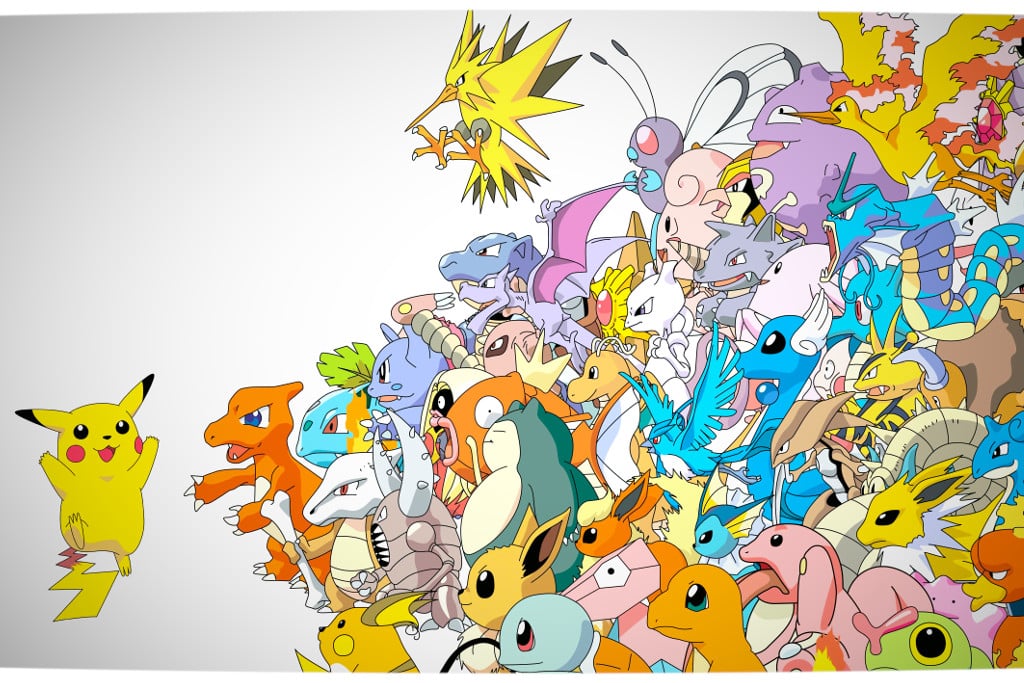The First Pokemon Movie Is Still The Best Thing About The Franchise

The year 1999 gave us a lot in pop culture: the best episode of Buffy the Vampire Slayer in perhaps the worst season ever, the beginning of Star Wars’ menace of a prequel, the debut album of pop star cultural philanthropist and icon Britney Spears, and the Wachowski’s unofficial Ghost in the Shell live-action called The Matrix. More importantly to me, however, it saw the best Pokemon story of all time.
On the 16th of December, The Pokemon Company released the first theatrical Pokemon movie in Australia, Pokemon: Mewtwo Strikes Back. The film follows Mewtwo, a genetically engineered clone of Mew, created by Team Rocket’s Giovanni as a superweapon and slave. However, Mewtwo is unlike other Pokemon and possesses independent thought and the ability to speak and learn about the outside world. Echoing the classic cautionary tale of scientific endeavours posed by Mary Shelley’s Frankenstein, Mewtwo rebels against his creators and vows to get revenge.
Disguising himself as a kidnapped Nurse Joy, he challenges trainers from across the world, including Ash, Misty and Brock, to beat the world’s greatest Pokemon master on an isolated abandoned island. Once they all arrive, he clones all 150 of their Pokemon and with his army plans for world domination, battling the originals.
The movie is famously known for making an entire generation of geeks cry when Pikachu cries over Ash being turned to stone after intercepting a battle between Mew and Mewtwo, but there’s a greater weirdly poetic and emotional journey about destiny and identity that transcends battles with adorable Pocket Monsters.
“I see now that the circumstances of one’s birth are irrelevant. It is what you do with the gift of life that determines who you are.”
This isn’t a quote from Aristotle, Thomas Jefferson or Martin Luther King. It was said by an anthropomorphic balls-for-fingertips clone in a Pokemon movie. Mewtwo is a rebel against society, some of y’all don’t recognise this, and it shows.
“This fucking movie has stuck with me my whole damn life!,” shares reddit user HeHeart in a post about Mewtwo as a philosopher in the Wholesome Memes subreddit.
“Legit the Valedictorian at my high school graduation used this quote. It was amazing,” admits another reddit user Carsonma.
In a world painted in racial conflict, messy politics and constant divisions of class, interests and culture, Mewtwo’s words speak resoundingly.
In the 4Kids English dub, Mew tells Mewtwo that violence achieves nothing and that one’s strength comes from within but the original Japanese dub characterises him as an original superior who confesses that only the original Pokemon are real. While these versions depict Mewtwo’s motive differently and paint a messier and more complicated story akin to the real world, this was a story about coming to terms with the idea that you can change your destiny, and be true to who you are and want to be outside of the limits of your surroundings.
Coming from a film based on the most popular kid’s cartoon at the time, about a preteen young boy and his pet mouse going on adventures in a world populated by adorable monsters, this was something else.
Not many of us who grew up with it remembered the true meaning of Mewtwo’s words, perhaps still not over the fact that Ash nearly DIED, but as we grew older and tried to push outside our own boundaries – the expectations of our family, our teachers and bullies – we learned what the legendary Poke-philosopher was trying to teach us.
“We do have a lot in common,” Mewtwo ponders. “The same Earth, the same air, the same sky. Maybe if we started looking at what’s the same instead of what’s different…well, who knows.”

There’s another philosophical layer to this film that’s still pertinent today: learning to live together in a divided world. After 25 years of unity between the United Kingdom and the rest of Europe, Britain’s far-right made the popular decision to split from Europe; following the rise in extremist white supremacist and Trump politics, America has become a complicated chaotically divided nation, and even members of the LGBT community are at war with one another because of labels and sexual prejudice disguised as a preference. In a world painted in racial conflict, messy politics and constant divisions of class, interests and culture, Mewtwo’s words speak resoundingly.
Maybe if we focused on what we had in common and tried to not divide ourselves, while celebrating what makes us unique and appreciate our differences, we wouldn’t be in such a state. At least, that’s the idea that Mewtwo concludes.
Two decades later and the Pokemon Company are remaking the deeply philosophical classic in a 3D animated reboot scheduled to screen in theatres sometime this year. Whether it’ll meet our nostalgic expectations is to be decided, but the message of Pokemon’s first movie is still relevant and perhaps always will be. It isn’t your surroundings that define you but what you make of them. If we learned to appreciate this world and each other, we might not all be at war with one another and ourselves.
Or ya know, that a small yellow mouse’s whimpers can make me cry.
Julian Rizzo-Smith is a friendly neighbourhood queer freelance writer reporting on pop culture, games and entertainment. He dreams of one day owning a real life Arcanine and will fight anyone that doesn’t believe Lapras is the best Pokemon of all time. He tweets at @retawes.


